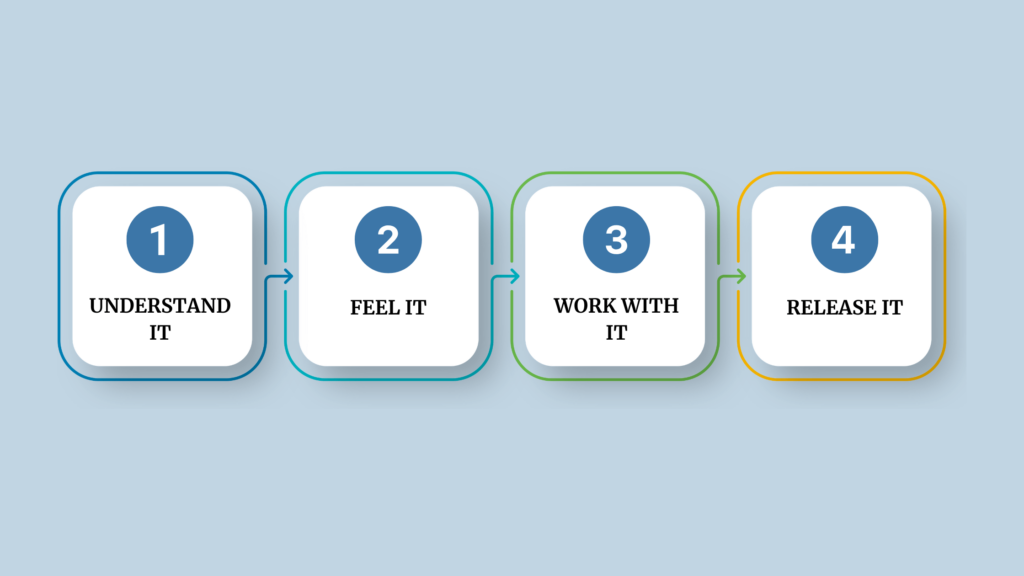Strict deadlines, mental health issues, and stressful situations—it’s no surprise that anger can flare up in high-pressure industries like construction. And while anger is a natural emotion, letting it simmer can do more harm than good, especially to your health. Fortunately, understanding how anger affects your body is the first step to keeping it in check and staying in control.
Quick looks
- Anger can increase your heart rate, raise blood pressure, disrupt digestion, and cloud decision-making, leading to serious health risks if left unmanaged.
- Long-term anger impacts the cardiovascular system, gut health, and brain function, increasing risks of hypertension, ulcers, and mental health issues like anxiety.
- Healthy ways to process anger include identifying triggers, allowing yourself to feel emotions, and releasing anger constructively through physical activities, mindfulness, or talking to someone.
- Management techniques like journaling, meditation, or deep breathing can help calm the mind and body and protect overall health and well-being.
Anger vs. upset: What happens when we get angry
Feeling upset and feeling angry aren’t the same thing. Being upset is a temporary emotional disturbance—like when your coffee order is wrong or someone cuts you off in traffic. Anger, on the other hand, is a much bigger beast. It’s a powerful emotional and physical reaction that can take over your body, raising your heart rate, spiking stress hormones, and putting your nervous system on high alert.
Anger isn’t uncommon in industries like architecture, engineering, and construction (AEC). All too often, workers step onto the job site with PTSD and other mental health conditions that only get worse under the strain of construction work, which can include high-pressure projects, tight schedules, and the constant need to problem-solve.
It would be easy to shrug it off as part of the job, but chronic anger can build up over time, impacting your health in ways you might not realize. Recognizing these patterns is the first step to managing them before they manage you.
Anger affects your mind and body
Your heart
When anger hits, your heart feels it first—literally. Anger triggers a surge of adrenaline, spiking your heart rate and blood pressure. While this fight-or-flight response is meant to help in emergencies (such as escaping a predator or being first in line at the DeWalt sample sale), staying in this heightened state too often strains your cardiovascular system. Over time, chronic anger can lead to hypertension, increased risk of heart attacks, and other heart-related issues. Simply put, holding onto anger isn’t just an emotional burden; it’s a physical one your heart can’t afford.
Your gut
Ever noticed that angry knot in your stomach? That’s not just a figure of speech. Anger disrupts your digestive system, increasing stomach acid and putting you at risk for ulcers or conditions like irritable bowel syndrome (IBS). Even more surprising is how closely your gut and brain are connected—when you’re angry, your gut can amplify inflammation throughout your body. It’s a vicious cycle where anger upsets your stomach, and your stomach issues can make you feel even worse.
Your brain
Anger doesn’t just affect your body—it clouds your mind, too. When angry, your brain floods with stress hormones like cortisol, impairing decision-making and memory. This can leave you stuck in a loop of frustration and poor choices. Over time, chronic anger can also take a toll on your mental health, contributing to anxiety and depression. Think of it like this: anger is the brain’s emergency flare—it’s fine in short bursts but burns you out if it lingers too long.
Feeling angry? Don’t bury it, process it

Pushing anger deep down might seem the easiest way to deal with it temporarily, but it’s like sweeping broken glass under the rug—it doesn’t go away; it just lingers and causes more harm later. Suppressed anger builds unresolved tension, which can escalate stress and worsen the physical toll on your body. Instead of bottling it up, learning to process anger in healthy ways can make all the difference.
Here are some actionable steps to help you manage anger:
Understand it
Anger isn’t random; it’s usually triggered by something specific. Take a moment to identify what set you off and validate your feelings without judgment. Maybe it was an unfair comment, a missed deadline, or a pile of responsibilities. Understanding why you’re angry is the first step toward managing it.
Feel it
It’s okay to feel angry. Trying to push the emotion away often backfires, making it more intense. Instead, allow yourself to experience anger fully—but safely. Sit with it, acknowledge it, and remind yourself that emotions are natural and temporary.
Work with it
Anger is energy, and channeling it into something constructive can help release that energy. Try journaling to explore your feelings or engage in physical activities like running, weightlifting, or even punching a bag (not a human one). These outlets let you process your emotions without lashing out.
Release it
Letting go of anger is essential for your well-being. Practice relaxation techniques like deep breathing, meditation, or progressive muscle relaxation to help your body and mind calm down. If you’re feeling stuck, talk to someone—a trusted friend, a mentor, or even a professional—to help you gain perspective and move forward.
Bottom line
Anger is a normal part of life—it’s how your body and mind respond to frustration, stress, or feeling wronged. But letting it fester or ignoring it can seriously affect your health, heart, gut, brain, and overall well-being. Acknowledging anger and learning to process it in healthy, constructive ways isn’t just good for your emotional health—it’s a step toward a longer, healthier life.
Managing anger doesn’t mean you’ll never feel it again. It means you’ll be better equipped to handle it when it arises, protecting your body and mind from its lasting effects.
Ready to take control of your health and stay ahead of life’s challenges? Subscribe to our newsletter for expert tips, industry insights, and actionable advice.


